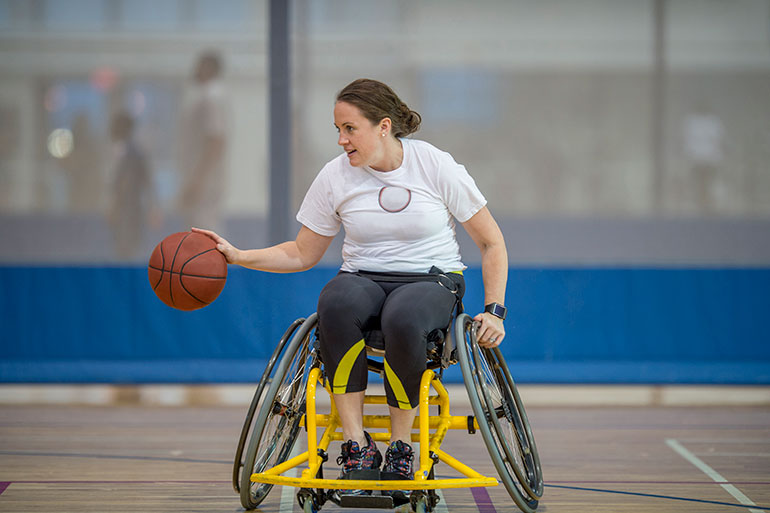
Conclusive evidence is supported by hundreds of studies, according to UBC researcher
What’s true for the general population is doubly true for those living with disabilities.
New research, led by UBC Okanagan Professor Kathleen Martin Ginis, has determined that exercise is essential for people living with disabilities—especially those with spinal cord injuries.
A professor with UBC Okanagan’s School of Health and Exercise Sciences, Martin Ginis is the founding director of SCI Action Canada, a national alliance of organizations and university-based researchers working to improve physical activity in people with spinal cord injury (SCI). As part of her work, her team completed a comprehensive study that concludes routine exercise improves the overall health and fitness in adults with spinal cord injury.
“Our research is a synthesis of every study published looking at the effect of exercise on fitness or cardio-metabolic health outcomes for people with spinal cord injury,” Martin Ginis explains. “There is now conclusive evidence that exercise leads to improvements in fitness for people with SCI and we have emerging evidence that exercise can also reduce cardiometabolic risk factors for people with SCI. Our review also identified the types and amounts of exercise that lead to these benefits.”
Martin Ginis describes cardiometabolic health as a cluster of risk factors connected to illnesses such as cardiovascular disease, diabetes and even obesity. Her team looked at more than 200 previously published studies; all of which examined the effects of exercise interventions (e.g., cardio, strength-training) on cardiorespiratory fitness, muscle strength, bone health, body composition and cardiovascular risk factors.
“This research is important because it provides an evidence base for developing exercise guidelines for adults with spinal cord injuries,” Martin Ginis says. “This is a significant step toward increasing exercise activity rates in a segment of the population that faces tremendous barriers to exercise participation.”
Martin Ginis’s latest research was recently published in Neurology and funded by the Rick Hansen Institute and the Social Sciences and Humanities Research Council of Canada.

UBC Professor Kathleen Martin Ginis.